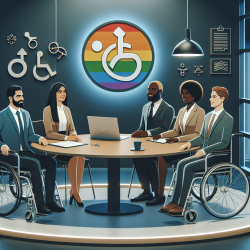Unlocking the Power of Compensatory Education: What You Need to Know
As a Special Education Director, ensuring that every student receives the support they need to succeed is my top priority. But what happens when the services outlined in a student's Individualized Education Program (IEP) aren't delivered as promised? Enter Compensatory Education—a vital resource for addressing learning or service loss when a school district fails to properly implement an IEP.
Understanding Compensatory Education
Compensatory Education, often called "Comp Ed," is designed to provide additional services and supports to students who have been denied appropriate IEP implementation. This is not a replacement for existing services but rather an enhancement to help students reach the level of progress they would have achieved if the IEP had been properly followed.
Eligibility for Compensatory Education
Your child may be eligible for Compensatory Education if:
- They are not receiving one or more services in their IEP.
- Their teacher or staff lack the appropriate credentials.
- There are delays in starting IEP services.
- They are not receiving the necessary support to achieve IEP goals.
Any failure to implement the IEP as intended could make your child eligible for additional support.
Documenting Learning or Service Loss
To address any learning or service loss, it's essential to document these issues thoroughly. Request service logs from your child's teacher and keep your own records of concerns or evidence of loss. An Independent Educational Evaluation (IEE) can also be beneficial in demonstrating the progress your child could have made with the right services.
Requesting Compensatory Education
You can initiate a request for Compensatory Education by calling an IEP meeting or contacting your child's special education case manager, principal, or special education supervisor. In California, you have up to two years to request Compensatory Education for district violations.
Award of Compensatory Education
The amount of Compensatory Education awarded can vary and is often a matter of negotiation. It's important to articulate what you believe your child deserves to make up for the learning loss. The services awarded may differ from those initially lost, focusing instead on addressing the specific educational gaps.
Types of Services Available
Compensatory Education can include a range of services, such as:
- Academic services and supports (including tutoring)
- Related services like speech, occupational therapy (OT), physical therapy (PT), and counseling
- Behavioral services and supports
- Assistive technology
These services may be provided by the school district, outside contracted providers, independent providers, or in some cases, parents may receive monetary reimbursement for services.
Student Rights and Procedural Safeguards
Students have the right to receive Compensatory Education services if there has been a loss due to the IEP not being followed. If you need support in requesting or negotiating these services, consider reaching out to organizations like Support for Families or engaging in mediation, filing a due process complaint, or hiring a special education advocate or attorney.
For more information, please follow this link.










